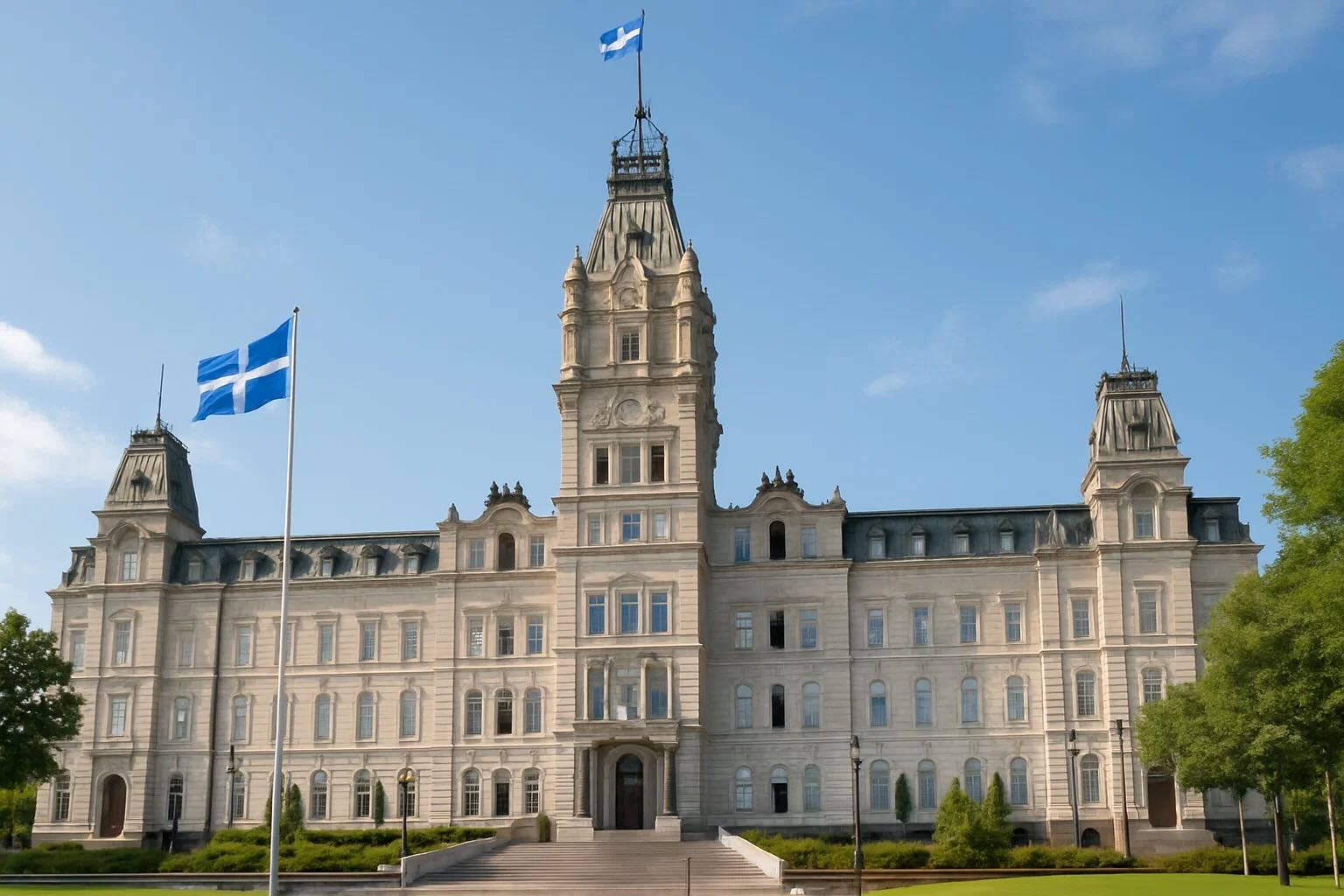The Post-Graduation Work Permit (PGWP) in Canada is an open work permit allowing international graduates to work for most employers in almost any industry across the country. This valuable Canadian work experience is often crucial for graduates aspiring to apply for Permanent Residence (PR). For instance, the Canadian Experience Class (CEC) program requires applicants to have at least one year of Canadian full-time work experience. Therefore, planning early to ensure eligibility for a PGWP upon graduation is a primary task every international student should take seriously from the beginning of their study planning.
Practical Guide: Three Steps to Ensure PGWP Compliance
Step One: Confirm Your Target Institution is a Designated Learning Institution (DLI)
Firstly, a core prerequisite for applying for a Canadian Study Permit is obtaining a Letter of Acceptance (LOA) from a "Designated Learning Institution" (DLI) recognized by the Canadian government. Only DLIs are authorized to enroll international students. If your chosen school is not on the official DLI list, your Study Permit application will be directly refused.
To confirm your school's DLI status and its PGWP eligibility, international students should follow these steps:
- Visit the Official IRCC DLI List Page: Go to the Government of Canada website page maintained by IRCC titled "Designated learning institutions list".
- Filter by Province/Territory: Scroll to the bottom of the page to find the "List of designated learning institutions by province/territory" section and use the drop-down menu to select the province or territory where your school is located.
- Use the Search Function: After selecting the province/territory, a list of registered DLIs in that area will appear. You can use the search box at the top of the table to quickly find your institution by name, DLI number, or city. Any institution listed in this table is a DLI. * Special Note: All primary and secondary schools in Canada are automatically designated as DLIs and therefore do not appear in this searchable list for post-secondary institutions.
- Verify Key Information: Once you find your institution's entry, be sure to note two important pieces of information:
- PGWP Eligibility: Check if the institution offers programs that qualify for a PGWP.
- DLI Number: This is the unique identification code you must enter under "Details of intended study in Canada" on your study permit application form.
What if you can't find the school in the list?
If your school is not listed under post-secondary institutions, first confirm it is not a primary or secondary school (as these are automatically designated and not shown here). If it truly does not appear, contact the institution's admissions office to verify their DLI status and PGWP eligibility information before you apply.
Step Two: Confirm Your Program of Study is PGWP Eligible
Simply confirming the school is a PGWP-eligible DLI is not enough; you must further verify that your specific program of study also meets the PGWP requirements.
It is crucial to note that, effective November 1, 2024, international graduates at certain study levels will face new language proficiency and field of study (i.e., related to Canadian labour market demand) requirements in addition to completing their studies when applying for a PGWP. These important changes are summarized below:
| Level of study | Language requirements | Field of study requirements |
|---|---|---|
| College / University bachelor’s, master’s or doctoral programs | English or French language proficiency equivalent to a level 7 CLB/NCLC in all four language abilities. | N/A |
| University programs not listed above | English or French language proficiency equivalent to a level 7 CLB/NCLC in all four language abilities. | Must have graduated from an eligible field of study. |
| College program or other non-university program | English or French language proficiency equivalent to a level 5 CLB/NCLC in all four language abilities. | Must have graduated from an eligible field of study. |
How to Find and Confirm Your Program's Corresponding CIP Code?
Canadian education programs are described and categorized using the "Classification of Instructional Programs" (CIP) system. To determine if your program is PGWP eligible (especially for courses requiring a specific field of study), you first need to find the CIP code corresponding to your program.
You can visit Statistics Canada's relevant webpage and use the search bar to enter keywords related to your program's title or description to find the 6-digit code (Class) that best matches your course. Since program titles can be general, be sure to carefully read the detailed description of the code, including examples and exceptions, to ensure the code you select accurately matches your actual program content.
Once you have determined the correct CIP code, you need to cross-reference it with the list of PGWP-eligible program codes provided by IRCC or relevant official guidelines (especially after November 1, 2024, for study levels requiring the field of study requirement).
* Important Note: Accurately finding and verifying the CIP code corresponding to your program directly impacts your PGWP eligibility and has profound implications for your future immigration pathway. Many international graduates choose to consult with experienced immigration consultants to ensure the accuracy of this critical information and maximize their chances of obtaining a PGWP and applying for permanent residence.
Other Important Conditions for PGWP Application
It's important to note that a PGWP is issued only once per applicant. Even if you complete a new program after receiving a PGWP, you cannot apply for another one.
The validity period of your PGWP depends on the level and length of the program you complete, typically ranging from 8 months to a maximum of 3 years:
- For Master's Programs: Effective February 15, 2024, Master's programs of at least 8 months (or 900 hours in Quebec) will be eligible for a PGWP of up to 3 years, even if the program is less than two years.
- For All Other Programs:
- Programs of at least 8 months (or 900 hours in Quebec) but less than two years in length, the PGWP validity will be up to the length of the study program.
- Programs of two years or more in length, the PGWP validity will be up to 3 years.
- If you completed more than one eligible program before applying for your PGWP, the validity period might consider the length of both programs.
In addition to the school and program being eligible, international students must meet a series of their own study and documentation requirements to successfully submit and obtain a PGWP:
- Completing an academic, vocational, or professional training program lasting at least eight months (or 900 hours in Quebec) at an eligible institution listed on the DLI list, resulting in a degree, diploma, or certificate.
- Maintaining full-time student status in Canada throughout each academic session of the program(s) included in the PGWP application (unless there are IRCC-recognized exceptions, such as the final term).
- Obtaining both an official transcript and an official letter from the eligible DLI confirming that the applicant has fulfilled the requirements to complete their program. These documents must be submitted with the post-graduation work permit application.
- Graduated from one of the following types of eligible institutions:
- A public post-secondary institution, such as a college, a trade or technical school, a university, or a CEGEP (in Quebec).
- A private post-secondary institution in Quebec that follows the same regulations as public institutions in Quebec.
- A private secondary or post-secondary institution in Quebec offering qualifying programs of 900 hours or more, leading to a diplôme d’études professionnelles (DEP) or an attestation de spécialisation professionnelle (ASP).
- A Canadian private institution authorized by provincial law to confer degrees (e.g., associate, bachelor's, master's, or doctorate), but only if the student was enrolled in a program that leads to a provincially authorized degree.
Do Not Overlook: Maintaining Canadian Admissibility is Crucial
Finally, even if you fully meet all the PGWP application eligibility criteria regarding your school, program, academic record, and documentation, the final approval depends on whether you still meet Canada's entry requirements (Admissibility) at the time of application. This means that if, during your study period, your circumstances change, such as developing a serious health condition, acquiring a criminal record, or significant changes in your home country leading immigration officers to doubt your intent as a temporary resident, your PGWP application could still be refused.
Therefore, international students should always be mindful of complying with Canadian laws and regulations, maintaining good health, and ensuring their personal circumstances do not negatively affect their 'admissibility'. Meeting academic requirements is fundamental, while maintaining legal temporary resident status and a clear record is another lifeline to ensure ultimately obtaining the PGWP successfully.
Given the policy changes, international students should be more prudent in planning their future. Carefully reviewing the latest guidelines published by IRCC, especially focusing on the details of the new regulations taking effect on November 1, 2024, and seeking professional help when necessary, will be key to ensuring a successful study journey and paving the way for a professional dream in Canada.









